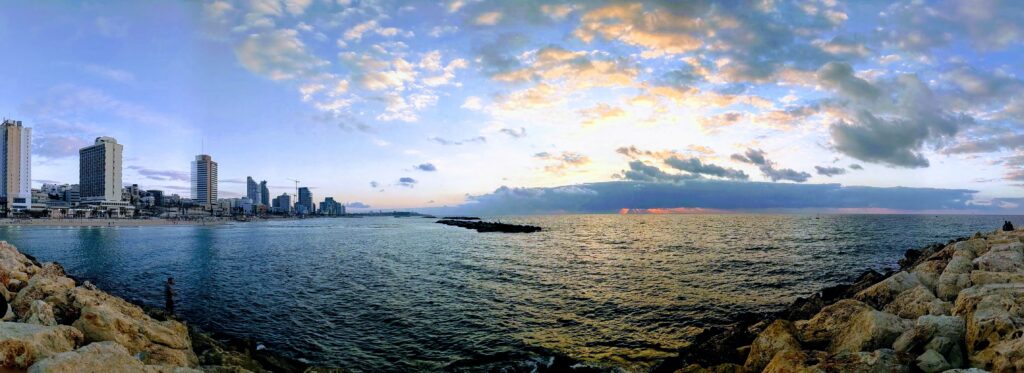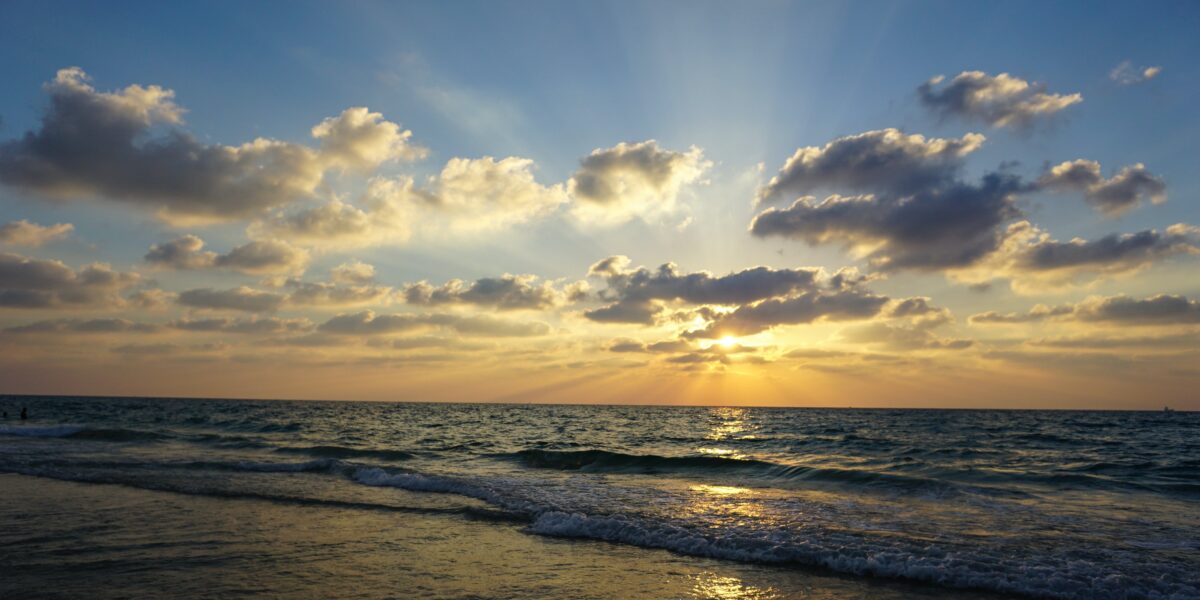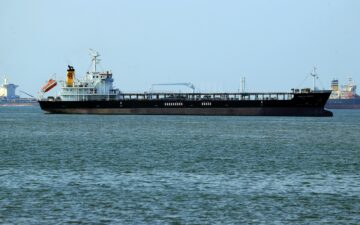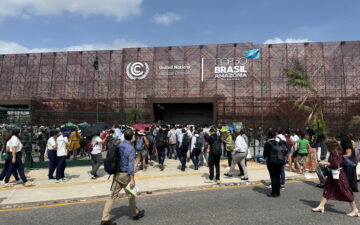The results of our national election feel half good—no matter who your candidate(s) are, the tight outcomes forecast difficulties in meeting the challenges of our times. Yet, I believe that there can be optimism because we have a great opportunity to continue to steer the human relationship with the ocean towards a more sustainable and just future for all of the communities whose well-being is so intertwined with that of the ocean and the life within.
Many of us were hoping for a clear affirmation of the value of science and the rule of law. We were also hoping for a national repudiation of white nationalism, racism and bigotry at every level in every way. We hoped for the restoration of decency, diplomacy, and for a united country. We hoped for the opportunity to re-engage in building a more inclusive society where everyone feels like they belong.
Many of our colleagues in other countries sent messages of hope that just such a thing would happen. One wrote: “Americans are GENEROUS, heart, mind and wallet, Americans were proud of this role and viewed with awe by us all. With America out of balance, tyranny is rising and democracy diminishing and we need you back…”
What does the 2020 election mean for the ocean?
We cannot say the last four years were an utter loss for the ocean. But for many coastal communities, the issues on which they had fought long and hard to be heard, and won, came right back to challenge them again. From seismic testing for oil and gas to sewage runoff to overdevelopment to plastic bag bans, the burden fell again on those who bear the cost of these kinds of short-sighted activities and rob the public of our shared natural resource legacy, while the benefits accrue to entities far away. The communities that successfully raised the alarm about blue-green algal blooms and red tides are still waiting for decisive action to prevent them.
The last four years proved once again that destroying the good is relatively easy, especially if science, legal procedures and public opinion are ignored. Fifty years of progress on air, water, and public health have been seriously eroded. While we regret losing four years in the effort to address climate change impacts and limit future harm, we also know that we still have to do everything we can. What we need to do is roll up our sleeves, join hands, and work together to rebuild the federal frameworks that will help us meet the considerable challenges of the future.
There are so many issues on the table—so many places where our capacity to lead as a nation have been deliberately undermined. The ocean will not be front and center in every conversation. With some exceptions because of COVID-19, the need to rebuild the economy, rebuild trust in government, and rebuild social and international diplomacy norms dovetails nicely with the steps required to restore abundance to the ocean.
Along the Gulf coast, in Mexico, Cuba, and the United States, communities are struggling to deal with the aftermath of this year’s record setting hurricane season, even as they were already dealing with rising, warming seas and shifting fisheries, and of course the pandemic. As they rebuild, they need our help to ensure that their communities are more resilient and that defensive habitats like mangroves, sand dunes, marshes and seagrass meadows are restored. Restoration is needed all along our coasts, and those activities create jobs and can help fisheries rebound, creating more jobs. And decent-paying, community building jobs are one thing we are really going to need as we rebuild the economy during a pandemic.

With limited capacity for U.S. federal leadership, progress on ocean conservation will need to continue elsewhere, specifically at international institutions, sub-national governments, academic institutions, civil society, and the private sector. Much of this work has continued despite the political obstacles.
And we at The Ocean Foundation will keep doing what we have always been doing. We too will survive whatever comes, and our mission will not change. And we will not shrink from making things better for everyone.
- The incalculable losses generated by inequity, injustice, and structural racism have not slowed– Our community must continue our work towards greater diversity, equity, inclusion and justice.
- The acidification of the ocean has not changed. We need to continue to work towards understanding it, monitoring it as well as adapting to and mitigating it.
- The global scourge of plastic pollution has not changed. We need to continue to work towards preventing the production of complicated, contaminated, and toxic materials.
- The threat of climate disruption has not changed, we need to continue to work towards building climate strong islands, restoring nature-based climate resilience of sea grasses, mangroves and salt marshes.
- Potentially leaking shipwrecks have not fixed themselves. We need to continue our work to find them and make a plan to stop them from harming the environment.
- The need for the private sector to play a role in making the ocean healthy and abundant again has not changed, we need to continue our work with Rockefeller and others to build a sustainable blue economy.
In other words, we will still prioritize the health of the ocean every day from wherever we are working. We will do our part to limit the spread of COVID-19 and help our grantees and coastal communities deal with the aftermath in ways that consider their long-term well-being. And we are excited about engaging new allies and to re-engage the old on behalf of our global ocean, on which all life depends.
For the ocean,
Mark J. Spalding
President
Mark J. Spalding, President of The Ocean Foundation is a member of the Ocean Studies Board of the National Academies of Sciences, Engineering, and Medicine (USA). He is serving on the Sargasso Sea Commission. Mark is a Senior Fellow at the Center for the Blue Economy at the Middlebury Institute of International Studies. And, he is an Advisor to the High Level Panel for a Sustainable Ocean Economy. In addition, he serves as the advisor to the Rockefeller Climate Solutions Fund (unprecedented ocean-centric investment funds) and is a member of the Pool of Experts for the UN World Ocean Assessment. He designed the first-ever blue carbon offset program, SeaGrass Grow. Mark is an expert on international environmental policy and law, ocean policy and law, and coastal and marine philanthropy.






